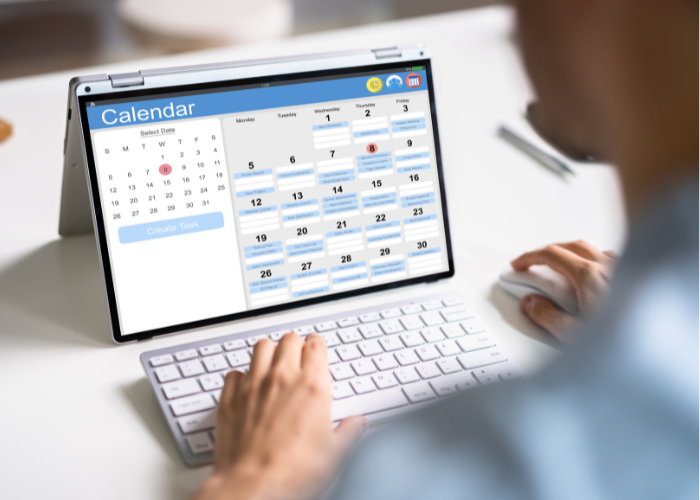Back-to-back meetings. Constant context-switching. A calendar that feels like it’s happening to you.
Welcome to middle management.
Most managers don’t get taught how to manage time - they get handed a calendar and thrown into the deep end. But here’s the truth:
You don’t need a personal assistant to run your week like a pro. You just need to become your own EA.
Designing your Operating Rhythm - the structure and intention behind how you use your time - is one of the highest-leverage moves a manager can make.
Here are 5 design principles to help you master it:
1️⃣ Treat your calendar like an instruction manual
Your calendar shouldn’t just show where you are - it should show what matters.
- DNS = Do Not Schedule: Block time for deep work and treat it as sacred.
- Label “Free” time intentionally: Open slots aren’t empty; they’re reserved—for skip levels, interviews, or reflection.
- Add buffers after big meetings: Follow-ups and alignment are where the impact happens. Don’t leave them to chance.
- Hold office hours: A simple way to be available without being constantly interrupted.
2️⃣ Partner with EAs (even if you don’t have one)
No EA? No problem. Build strong working relationships with the EAs of senior leaders or cross-functional stakeholders.
Smart coordination = smarter meetings.
For example: Delay a meeting with your VP until you’ve spoken with the right people and gathered the key inputs. That one move can eliminate countless follow-ups and rework.
3️⃣ Refresh your calendar every quarter
Calendars go stale - fast.
Check in quarterly to ask:
- Are these meetings still necessary?
- Is information flowing in the right order?
- Can anything be cut, combined, or clarified?
Design for how work actually happens, not how it used to.
4️⃣ Align with business cycles
Your calendar should flex to match the season.
During peak periods:
- Increase standups to stay tight and nimble
- Decrease non-essential meetings to avoid overload
- Pre-book retros and debriefs for after the storm
Make time for urgency and reflection.
5️⃣ Start the week with a Monday ritual
Before the week takes over, take control.
Spend 30 minutes every Monday to ask:
- What matters most this week?
- Where can I get the most leverage?
- What’s missing, unclear, or misaligned?
This small ritual pays off in clarity, delegation, and focus.
The bottom line
Time is one of your most limited - and powerful - resources.
By becoming your own EA, you move from reactive to intentional.
From busy to effective.
From scattered to strategic.
Your calendar isn’t just a schedule.
It’s a signal of how you lead.
----
Keen to help your managers level up their operating rhythm? The Mintable’s Manager Mastery program covers this and more - with practical tools and real-world strategies.



